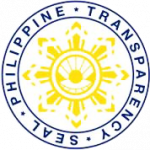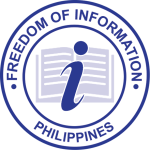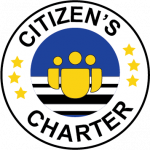- GOVPH
- About BOC
- Issuances
- Aduana Library
- Memoranda
- Memoranda for Reference Values
- Customs Administrative Order (CAO)
- Customs Administrative Order (CAO) 2025
- CUSTOMS ADMINISTRATIVE ORDER (CAO) 2024
- Customs Administrative Order (CAO) 2023
- Customs Administrative Order (CAO) 2022
- Customs Administrative Order (CAO) 2021
- Customs Administrative Order (CAO) 2020
- Customs Administrative Order (CAO) 2019
- Customs Administrative Order (CAO) 2018 and Older
- Customs Memorandum Order (CMO)
- Customs Memorandum Circular (CMC)
- Customs Memorandum Circular (CMC) 2025
- Customs Memorandum Circular (CMC) 2024
- Customs Memorandum Circular (CMC) 2023
- Customs Memorandum Circular (CMC) 2022
- Customs Memorandum Circular (CMC) 2021
- Customs Memorandum Circular (CMC) 2020
- Customs Memorandum Circular (CMC) 2019
- Customs Memorandum Circular (CMC) 2018 and Older
- Customs Special Order (CSO)
- Custom Training Circular (CTC)
- Joint Memorandum Orders (JMO)
- Trade
- News Room
- Port Updates
- HR Corner
- Quicklinks
- Infographics
- Bureau of Customs Webinar
- Auction and Sales
- Bid Opportunities
- Invitation to Bid / Request for Quotation / Invitation for Negotiated Procurement / Notice to Conduct Direct Contracting – 2023
- Invitation to Bid / Request for Quotation / Invitation for Negotiated Procurement / Notice to Conduct Direct Contracting – 2022
- Invitation to Bid / Request for Quotation / Invitation for Negotiated Procurement / Notice to Conduct Direct Contracting – 2021
- Invitation to Bid / Request for Quotation / Invitation for Negotiated Procurement / Notice to Conduct Direct Contracting – 2020
- Invitation to Bid / Request for Quotation / Invitation for Negotiated Procurement / Notice to Conduct Direct Contracting – 2019
- Invitation to Bid / Request for Quotation / Invitation for Negotiated Procurement / Notice to Conduct Direct Contracting
- Bid Documents
- Bid Supplement
- Summary of Awarded Contracts
- Summary of Contracts Awarded 2023
- Summary of Contracts Awarded 2022
- Summary of Contracts Awarded 2021
- Summary of Contracts Awarded 2020
- Summary of Contracts Awarded 2019
- Summary of Contracts Awarded 2018
- Summary of Contracts Awarded 2017
- Summary of Contracts Awarded 2016
- Summary of Contracts Awarded 2015
- Summary of Contracts Awarded 2014
- Summary of Contracts Awarded 2013
- Annual Procurement Plan
- Customs Knowledge Resources
- References
- Gender Equality and Diversity
- Philippine National Trade Repository
- Philippine Tariff Finder
- Authorized Economic Operator
Philippines Retains 2nd Spot Among ASEAN in 2025 UN Survey on Digital and Sustainable Trade Facilitation
The Philippines has once again secured its place as a regional leader in trade modernization, retaining its position as the second-highest ranked country in Southeast Asia in the 2025 United Nations Global Survey on Digital and Sustainable Trade Facilitation. This milestone reflects the steadfast leadership of President Ferdinand R. Marcos Jr. in driving digital transformation and inclusive economic growth through streamlined trade processes.
According to the latest UN report launched in July 2025, the Philippines achieved an overall trade facilitation score of 91.40%, marking a significant improvement from 86.02% in 2023. This progress is a testament to the administration’s commitment to modernizing public services, fostering innovation, and enhancing the country’s competitiveness in the global market.
During the virtual launch of the report, Director Rupa Chanda of the Trade, Investment and Innovation Division at UN ESCAP recognized the Philippines—alongside Azerbaijan, Uzbekistan, Georgia, and Malaysia—for surpassing the 90% implementation threshold for the first time since the survey’s inception in 2015. This achievement highlights the country’s increasing momentum in adopting efficient and sustainable trade facilitation practices.
Now in its sixth edition, the 2025 UN Global Survey provides a comprehensive global assessment of trade facilitation efforts across five regions—Asia-Pacific, Africa, the UN Economic Commission for Europe (UNECE), Latin America and the Caribbean, and the UN Economic and Social Commission for Western Asia (ESCWA). It highlights global and regional trends, and recognizes countries making significant strides toward efficient, inclusive, and sustainable trade practices.
Instrumental to the Philippines’ performance is the Bureau of Customs (BOC), whose ongoing reforms and modernization initiatives support the goals of the Marcos administration. These include active participation in the Framework Agreement on Facilitation of Cross-border Paperless Trade in Asia and the Pacific (CPTA), the ASEAN Single Window, and the electronic exchange of Phytosanitary Certificates (e-Phyto). The report also recognized the country’s continued efforts in implementing the World Trade Organization Trade Facilitation Agreement (WTO TFA), led by the Philippine Trade Facilitation Committee (PTFC). Through the PTFC, the government fosters coordinated, inclusive, and stakeholder-driven trade facilitation policies.
Among its flagship programs, the BOC’s Authorized Economic Operator (AEO) initiative incentivizes compliance and supply chain security through simplified customs procedures, reflecting the government’s broader push for a rules-based, transparent, and business-friendly trade environment.
Commissioner Ariel F. Nepomuceno reaffirmed the BOC’s commitment to further advancing the country’s trade facilitation efforts beyond the requirements of the WTO Trade Facilitation Agreement, especially in areas aligned with the President’s development agenda, such as e-commerce digitalization, gender empowerment in trade, and green customs practices.
This global recognition not only affirms the effectiveness of the Marcos administration’s reforms but also reinforces the Philippines’ path toward sustainable development and inclusive economic progress. As the government continues to push forward with its digitalization and trade facilitation roadmap, Filipinos can expect more efficient services, enhanced investor confidence, and expanded economic opportunities.
ABOUT GOVPH
All content is in the public domain unless otherwise stated.






